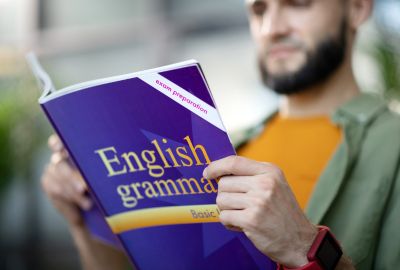Understanding English Conditionals

Conditional sentences are a fundamental part of English grammar, allowing speakers to express hypothetical situations and their potential outcomes. Mastering the four types of conditionals can significantly enhance your ability to communicate complex ideas in English. This article will guide you through each type of conditional, providing clear explanations and examples to help you use them confidently.
The Four Types of Conditionals
English has four main types of conditional sentences:
- Zero Conditional
- First Conditional
- Second Conditional
- Third Conditional
Each type is used for different situations and levels of probability.
Zero Conditional
The zero conditional is used to talk about general truths or scientific facts.
Structure: If + present simple, present simple
Example:
- If you heat water to 100°C, it boils.
- When it rains, the ground gets wet.
First Conditional
The first conditional is used for real and possible situations in the future.
Structure: If + present simple, will + infinitive
Example:
- If it rains tomorrow, I will stay at home.
- I'll call you if I finish work early.
Second Conditional
The second conditional is used for unreal or improbable situations in the present or future.
Structure: If + past simple, would + infinitive
Example:
- If I won the lottery, I would travel the world.
- She would buy a house if she had enough money.
Third Conditional
The third conditional is used for unreal situations in the past (things that didn't happen).
Structure: If + past perfect, would have + past participle
Example:
- If I had studied harder, I would have passed the exam.
- She would have got the job if she had been more qualified.
Mixed Conditionals
Mixed conditionals combine different types of conditionals. They're used when the time period in the 'if' clause is different from the time period in the main clause.
Example:
- If I had studied medicine (past), I would be a doctor now (present).
Common Mistakes to Avoid
-
Using 'will' in the if-clause of first conditionals Incorrect: If it will rain, I will stay home. Correct: If it rains, I will stay home.
-
Forgetting to use the past perfect in third conditionals Incorrect: If I studied harder, I would have passed the exam. Correct: If I had studied harder, I would have passed the exam.
-
Mixing up second and third conditionals Incorrect: If I won the lottery last year, I would travel the world. Correct: If I had won the lottery last year, I would have traveled the world.
Tips for Mastering Conditionals
- Practice each type separately before combining them.
- Pay attention to the tenses used in each part of the conditional sentence.
- Use real-life situations to create your own conditional sentences.
- Listen for conditionals in English movies, TV shows, and podcasts.
- Try rephrasing statements as conditionals to practice different forms.
Conclusion
Understanding and using English conditionals correctly can greatly improve your ability to express complex ideas and hypothetical situations. While it may take some time to master all four types, regular practice will help you incorporate them naturally into your English communication.
Remember, even native English speakers sometimes struggle with the more complex conditional forms. Don't be discouraged if you find them challenging at first. With consistent practice and exposure, you'll soon find yourself using conditionals with confidence.
Ready to enhance your grasp of English conditionals? Visit English Mentor to access interactive lessons and exercises designed to help you master conditional sentences and other crucial aspects of English grammar. Start improving your English skills today!